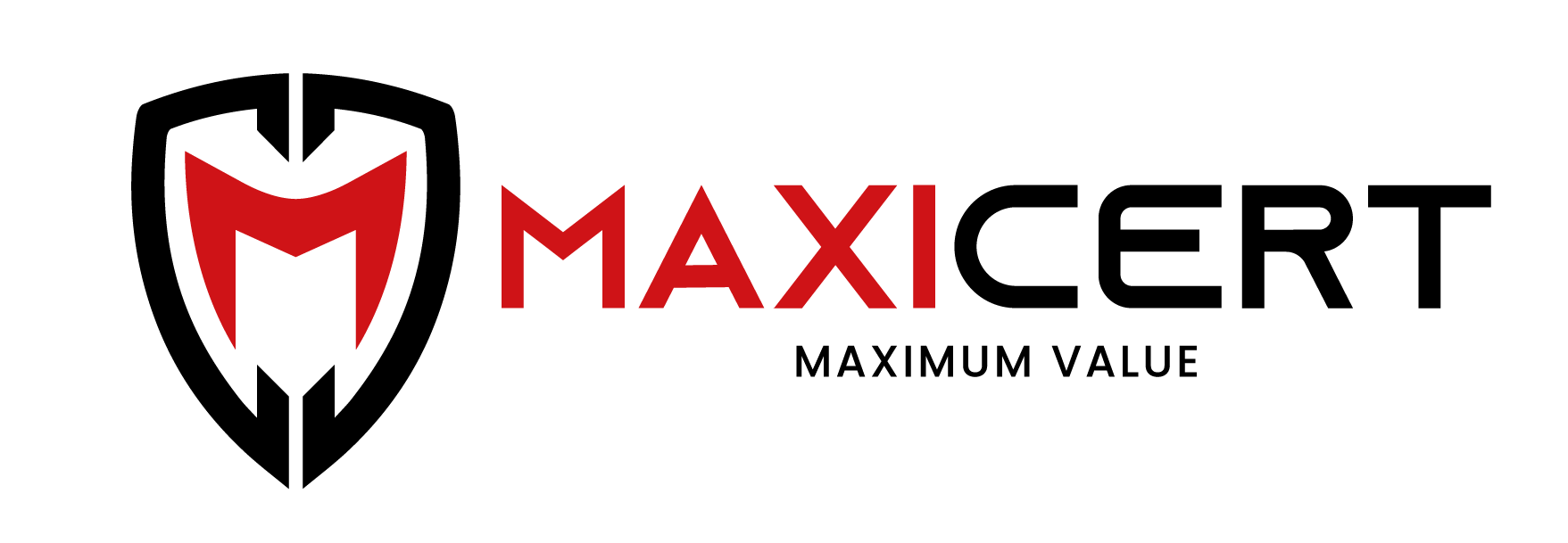ISO Certification In Lebanon

Maxicert provides ISO Certification and Consultation services in Lebanon. Our ISO consultants provide consulting, implementation, documentation, training, auditing, and registration services in Baalbek, Beirut, Tripoli, Byblos, Sidon and other major cities. We specialize in a wide range of ISO standards, including 9001, 14001, 45001, 18001, 22000, 27001, 13485, and 17025. Additionally, we specialize in CE Mark, HACCP, BIFMA, ROHS, VAPT, and Halal certification around the world at an affordable cost.
ISO certification signifies that a company meets the rigorous standards set by the International Organization for Standardization (ISO). These standards are designed to ensure the quality, safety, and efficiency of products, services, and systems.
- International Standards: ISO develops and publishes international standards to ensure quality, safety, and efficiency.
- Global Recognition: ISO standards are recognized globally, making it easier for businesses to enter international markets.
- Continuous Improvement: ISO standards promote continuous improvement and operational excellence.
- Customer Satisfaction: ISO certification enhances customer trust and satisfaction by ensuring high-quality products and services.
- Regulatory Compliance: ISO standards help businesses comply with regulatory requirements, reducing legal risks.
What is ISO Certification?
In today’s competitive market, ISO certification in Lebanon is no longer just a luxury—it’s a necessity. Businesses across various industries seek ISO certification to demonstrate their commitment to quality, efficiency, and customer satisfaction. But why exactly do you need ISO certification in Lebanon? The answer lies in the benefits it offers: enhanced credibility, improved operational efficiency, and a significant competitive edge. ISO certification in Lebanon ensures that your business adheres to international standards, thereby boosting customer trust and opening doors to global markets.
How to Get ISO Certification In Lebanon
Achieving ISO certification in Lebanon involves several key steps:
- Understanding Requirements: Familiarize yourself with the specific ISO standards relevant to your industry.
- Gap Analysis: Conduct a thorough gap analysis to identify areas that need improvement.
- Implementation: Implement the necessary changes to align your processes with ISO standards.
- Internal Audit: Perform an internal audit to ensure compliance with ISO requirements.
- External Audit: Engage an accredited ISO certification body to conduct an external audit.
- Certification: Once the external audit is successful, you will receive your ISO certification.
ISO certification in Lebanon is a detailed process, but with the right approach, it can be achieved efficiently.
Benefits of ISO Certification in the Lebanon
ISO certification in Lebanon offers numerous benefits, including:
- Enhanced Credibility: ISO certification boosts your company’s reputation, making it more attractive to customers and partners.
- Operational Efficiency: Standardized processes lead to increased efficiency and reduced waste.
- Market Access: ISO certification opens doors to international markets by demonstrating compliance with global standards.
- Customer Trust: Customers are more likely to trust and choose a company that is ISO certified.
- Regulatory Compliance: Ensures compliance with local and international regulations, reducing the risk of legal issues.
- Competitive Advantage: Differentiates your business from competitors who are not ISO certified.
Our Approach and Cost and Timelines
At Maxicert, we are dedicated to making the ISO certification process as seamless as possible. Our approach includes:
- Initial Consultation: We start with a detailed consultation to understand your specific needs.
- Customized Plan: We develop a tailored plan to guide you through each step of the certification process.
- Implementation Support: Our experts assist you in implementing the necessary changes to meet ISO standards.
- Audit Preparation: We help you prepare for both internal and external audits to ensure a smooth certification process.
- Ongoing Support: Post-certification, we provide continuous support to help you maintain compliance.
Cost and Timelines
The cost of ISO certification in Lebanon varies depending on the size and complexity of your organization. The timeline for achieving certification typically spans from three to six months, depending on your readiness and the resources allocated to the process.
Get Free Consultation
Types Of ISO Certification In Lebanon
Other Certifications In Lebanon
Why choose us for ISO certification in Lebanon
Choosing the right partner for your ISO certification journey is crucial. At Maxicert, we are the leading ISO consultants in Lebanon, offering unparalleled expertise and support. Contact us today to start your ISO certification in Lebanon journey. Why choose us? Because we are committed to your success and excellence.
Remember, ISO certification in Lebanon is an investment in your business’s future. By partnering with the best ISO consultants in Lebanon, you can achieve and maintain the high standards that set you apart from the competition. Contact us today to learn more about our ISO certification services in Lebanon.
Types of Industries that Need ISO Certification in Lebanon
ISO 9001 sets the criteria for a quality management system. It is the only standard in the ISO 9000 series that can be certified. ISO 9001 is based on several quality management principles including a strong customer focus, the involvement of top management, a process approach, and continual improvement. This standard is used by organizations of all sizes and industries to ensure that they consistently provide products and services that meet customer and regulatory requirements.
Industries such as manufacturing, healthcare, and service sectors benefit greatly from ISO 9001 certification as it helps in streamlining operations and improving customer satisfaction.
ISO 14001 sets out the criteria for an environmental management system and can be certified to. It maps out a framework that a company or organization can follow to set up an effective environmental management system. Designed for any type of organization, regardless of its activity or sector, ISO 14001 provides assurance to company management and employees as well as external stakeholders that environmental impact is being measured and improved.
Industries that are heavily regulated for environmental impacts, such as manufacturing, waste management, and agriculture, typically require ISO 14001 certification to demonstrate their commitment to reducing environmental footprints.
ISO 45001 specifies requirements for an occupational health and safety (OH&S) management system. It provides a framework for managing OH&S risks and opportunities. The goal is to prevent work-related injury and ill-health and to provide safe and healthy workplaces. ISO 45001 is applicable to any organization that wishes to establish, implement, and maintain an OH&S management system to improve occupational health and safety, eliminate hazards, and minimize OH&S risks.
Industries with high risks of workplace hazards, such as construction, manufacturing, and mining, benefit significantly from ISO 45001 certification.
ISO 13485 specifies requirements for a quality management system where an organization needs to demonstrate its ability to provide medical devices and related services that consistently meet customer and regulatory requirements. This standard is designed for organizations involved in the design, production, installation, and servicing of medical devices.
Industries such as medical device manufacturing and healthcare services require ISO 13485 certification to ensure that their products are safe and effective for use.
Halal certification is a process that ensures the quality of the products according to the rules established by the Islamic Council that allows the use of the mark Halal. Halal-certified products are those that are permissible for Muslims to eat or drink under Islamic law.
Industries such as food and beverage, pharmaceuticals, and cosmetics often seek Halal certification to appeal to Muslim consumers globally.
ISO 27001 provides a framework for establishing, implementing, maintaining, and continually improving an information security management system (ISMS). The standard helps organizations make the information assets they hold more secure. It includes requirements for assessing and treating information security risks tailored to the needs of the organization.
Industries that deal with sensitive information, such as finance, IT services, and healthcare, require ISO 27001 certification to ensure the security and integrity of their data.
ISO 22000 sets out the requirements for a food safety management system and can be certified to. It maps out what an organization needs to do to demonstrate its ability to control food safety hazards to ensure that food is safe. It can be used by any organization regardless of its size or position in the food chain.
Industries involved in food production, processing, packaging, and distribution need ISO 22000 certification to ensure their products are safe for consumption.
ISO/IEC 17025 specifies the general requirements for the competence of testing and calibration laboratories. It is applicable to all organizations performing laboratory activities, regardless of the number of personnel. ISO 17025 helps facilitate cooperation between laboratories and other bodies by generating wider acceptance of results between countries.
Industries such as chemical, mechanical, and environmental testing labs benefit from ISO 17025 certification as it ensures the reliability and accuracy of their testing and calibration results.
ISO 50001 provides a framework for establishing, implementing, maintaining, and improving an energy management system (EnMS). The standard aims to help organizations continually improve energy performance, including energy efficiency, use, and consumption. ISO 50001 can be applied to all organizations, regardless of their size or sector.
Industries with high energy consumption, such as manufacturing, utilities, and transportation, benefit from ISO 50001 certification as it helps reduce energy costs and improve sustainability.
The CE mark is a certification mark that indicates conformity with health, safety, and environmental protection standards for products sold within the European Economic Area (EEA). The CE marking is also found on products sold outside the EEA that have been manufactured to EEA standards.
Industries such as electronics, machinery, and construction products require CE Mark certification to ensure their products meet EU regulatory requirements and can be sold in the EEA.
Why Do Industries Need ISO Certification In Lebanon?
There are so many reasons to get ISO certification, but let’s know what are the main advantages of getting ISO Certification In Lebanon.
Tender Eligibility
Getting an ISO certification in Lebanon can qualify you for tenders and agreements, creating opportunities for new businesses and contracts.
Continuous Improvement
ISO standards promote a culture of constant improvement. The ISO Certification process boosts innovation, tackles issues, and gradually fosters organizational growth.
Improved Efficiency
Implementing ISO standards can streamline your organization's processes and efficiency, resulting in overall growth.
Increases Trust
Implementing ISO certification in Lebanon shows a promise to meet global standards. It boosts belief and confidence in clients, stakeholders, and partners.
Government Recognization
Being ISO certified company in Lebanon, government will recognize such companies and it will help to get government projects.
Global Market Access
Getting an ISO certificate helps businesses go global. It shows they follow international rules and standards. This can lead to new chances for business and partnerships.
Need Help In Getting ISO Certification In Lebanon?
One of the most important things to get ISO certification in Lebanon is to choose the best ISO consultants in Lebanon. What else are you awaiting? The best step you have to take is to contact us.
We have the best ISO consultants. The next question comes about the prices. Don’t worry; we will make certain that the ISO certification cost in Lebanon is as minimal as possible.
FAQS
You can obtain ISO certification in Lebanon through accredited certification bodies that assess and certify organizations based on ISO standards.
The primary purpose of ISO certification is to ensure that businesses meet international standards for quality, safety, and efficiency, thereby enhancing credibility and operational performance.
Any organization, regardless of size or industry, that wants to improve its processes, enhance customer satisfaction, and gain a competitive edge can benefit from ISO certification.
The requirements for ISO certification include understanding the relevant ISO standards, conducting a gap analysis, implementing necessary changes, performing internal audits, and undergoing an external audit by an accredited certification body.


